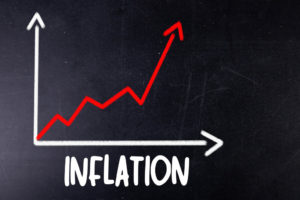
By Hari Subramanian
Special to the Financial Independence Hub
From the ‘safety-first’ attitude of baby boomers to the ‘putting themselves out there’ nature of Gen Z, generational cohorts offer great insights into the evolution of the human psyche based on different experiences.
Millennials are not exactly what you call ‘risk takers’ but are more open towards new opportunities, compared to previous generations. This characteristic of millennials can be seen in the way they invest their money: they are willing to move away from fixed deposits and RRSPs that the boomers swore by and are looking to invest in stocks, cryptocurrency, and other financial avenues.
Why should Millennials invest?
While more and more millennials are dabbling into investing in different portfolios, almost 50% of the cohort is still waiting to invest until they earn more money. This data contradicts the popular belief that the best time to invest is yesterday, and those who wait are losing precious time to grow their money.
If you are one of those who procrastinate about investing money for later or think you need a 6-digit income to substantially boost your financial growth, you couldn’t be more wrong. Start your investment journey as early as you can as your returns compound with time, and you’ll learn the tricks of the trade to become a more component investor in the future. And, you can start investing with just a handful of dollars.
Investment Tips for 2022
If you are a millennial just beginning to build your investment portfolio or a seasoned millennial investor, these 6 financial tips will help you stand in good stead for 2022:
Robo Advisors to the rescue
Trading in stocks requires constant scrutiny of rising and falling stock prices and earnings, and a good understanding of how the stock market functions. In the recent phenomenon of a surge in GameStop shares created by a group of Reddit investors, many retail investors and short-selling hedge funds that were betting for the company to fail lost billions of dollars.
While it is only human to jump on the bandwagon of a stock market frenzy in an attempt to earn substantial profits, it entails high risks and can cause a lot of damage to your finances.
If you are new to the stock investment game or don’t have enough time to monitor the peaks and troughs of the stock market, then you should explore robo advisors to help you achieve your financial goals with minimal risks.
For the uninitiated, robo advisors are digital portals that control and optimize your investment portfolios through the use of algorithms and data-driven strategies. Robo advisors are very easy to use, as they automate your investments based on your investment budget and long-term financial goals.
They also are pretty inexpensive with an affordable minimal balance to open investment accounts for investors from all walks of life. With minimal human supervision, a robo advisor can adjust your investments automatically based on market fluctuations while focussing on your monetary goals. Thus, if you wish for steady growth of your investments without any undue risk, you can explore the web to find the right robo advisor for you.
ESG Investments can make you a better investor

As more and more millennials are standing up for environmental, social, and socio-political causes, it is time for their investments to reflect their thought process. ESG investments are defined as investments based on non-financial factors such as environmental, social, and governance impact of a company on society.
In ESG investments, millennials pour in money on the company stocks they believe will make a difference to the world they live in. Through ESGs, millennials extend their support to companies whose beliefs align with theirs and hope that it creates a sustainable future for their children.
ESG investments also provide a great learning curve for investors. Since personal beliefs, values, and socio-environmental impact are involved, you as an investor tend to go the extra mile to learn everything about the company including its financial health and revenue model instead of just blindly buying stocks that are on the rise.
ESGs can help you understand how and why a company’s stock performs in a certain way and can teach you a lesson in becoming better investors.
Ditch individual Stock Picking
Before we delve into why stock picking is not a good investment option, it is imperative to understand what stock picking is. Based on market research and analysis, stock picking is a strategy to find the stocks that are most likely to deliver favourable investment returns. Continue Reading…





